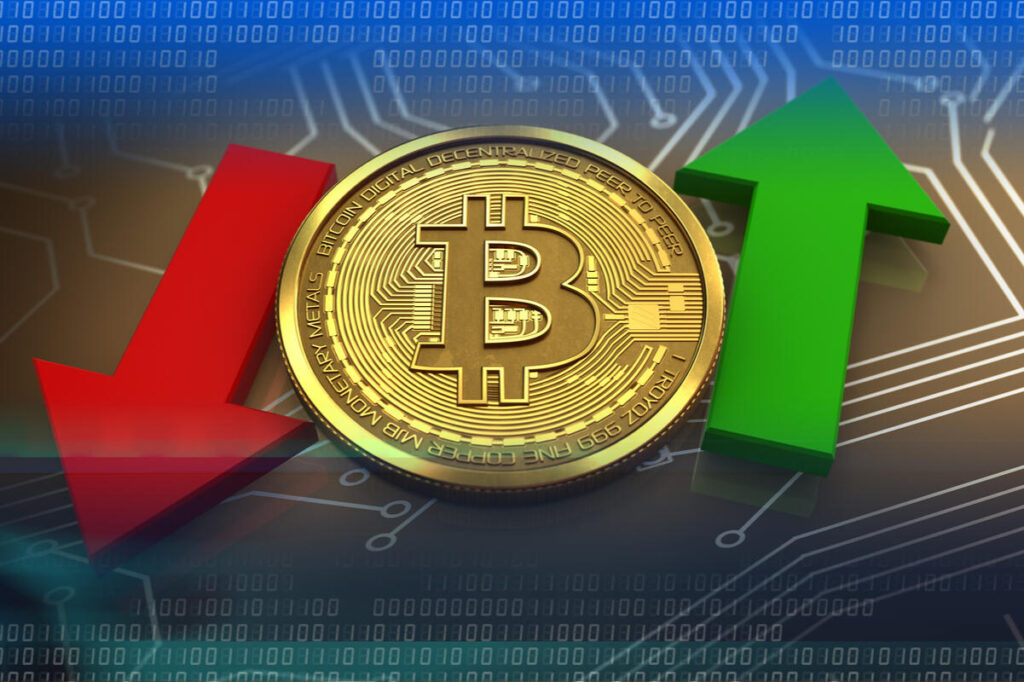Ripple CEO Predicts Crypto Market Explosion to $5 Trillion by 2024

I am a law graduate from NLU Lucknow. I have a flair for creative writing and hence in my free time work as a freelance content writer.

I am a law graduate from NLU Lucknow. I have a flair for creative writing and hence in my free time work as a freelance content writer.

I am a student pursuing my bachelor’s in information technology. I have a interest in writing so, I am working a freelance content writer because I enjoy writing. I also write poetries. I believe in the quote by anne frank “paper has more patience than person

I am a law graduate from NLU Lucknow. I have a flair for creative writing and hence in my free time work as a freelance content writer.

I am a student pursuing my bachelor’s in information technology. I have a interest in writing so, I am working a freelance content writer because I enjoy writing. I also write poetries. I believe in the quote by anne frank “paper has more patience than person
Cryptocurrency markets experienced a turbulent morning in Asia as Bitcoin, Ether, and most of the top ten non-stablecoin cryptocurrencies witnessed significant declines.

Bitcoin, hovering slightly above US$26,000, retraced most of its gains triggered earlier in the week by a favorable U.S. court ruling for Grayscale Investments in its Bitcoin ETF case against the SEC. Investors worldwide are now eagerly awaiting the U.S. payroll report for August in hopes of gaining insights into future interest rate policies.
Over the past 24 hours, Bitcoin plummeted by 4.42%, reaching US$26,042.84 by 07:00 a.m. in Hong Kong. For the week, Bitcoin’s performance showed a modest decline of 0.26%, according to CoinMarketCap data. This setback can be attributed to the U.S. Securities and Exchange Commission’s announcement of a delay in the decision on seven spot Bitcoin exchange-traded fund (ETF) applications, now postponed until October. Among those anxiously awaiting ETF approval are major asset management firms like BlackRock, WisdomTree, and VanEck. However, this delay has cast a shadow on market sentiment.
Benjamin Stani, Director of Business Development at Matrixport, a Hong Kong-based digital asset broker, remarked, “The pump we had from Grayscale-SEC news is now faded.” The market had been optimistic, hoping for a swift path forward after the Grayscale ruling and raising the probability of a spot ETF approval before year-end. However, with this delay, it appears that approval is not imminent.
Ether, the second-largest cryptocurrency, faced a 3.15% drop, falling to US$1,648.76 over the past 24 hours, resulting in a weekly loss of 0.33%. Analysts are closely monitoring technical signals for Ethereum, as it appears to be approaching a ‘death cross.’ This ominous pattern occurs when the short-term average falls below the long-term trend, typically indicating further losses ahead. Currently, the short-term 50-day average stands at 1808.3, while the 200-day average is at 1802.9.
Rachael Lucas, a crypto technical analyst at BTC Markets, cautioned, “It’s essential to consider these movements in the context of broader market dynamics, as the cryptocurrency space can be characterized by rapid price shifts.” Ether’s descent into negative territory on a weekly timeframe suggests a potential short-term pullback.
Several other top ten non-stablecoin cryptocurrencies experienced losses, with Solana’s SOL taking the lead with a 5.07% dip to US$19.81, its lowest level in over six weeks. Additionally, a U.S. court dismissed a class action lawsuit against Uniswap Labs, reinforcing the decentralized nature of cryptocurrency protocols and its implications for the industry.
This ruling is seen as a victory for decentralized finance (DeFi), with potential implications for regulatory clarity. Samer Hasn, a market analyst for online brokerage XS.com, emphasized the need for striking a balance between regulation and innovation in the DeFi space.
Also Read: Gin Bothy Founder on Why She is Moving Distillery to Forfar
The total crypto market capitalization fell by 3.46% to US$1.05 trillion, while trading volume increased by 16.61% to US$37.31 billion. Meanwhile, U.S. stock futures remained relatively stable after a mixed regular trading session on Thursday.
Economic indicators suggest a mixed outlook, with strong consumer spending but signs of an economic slowdown. The Federal Reserve’s aggressive tightening campaign may pause, with the potential for interest rate hikes being reevaluated in September.

I am a law graduate from NLU Lucknow. I have a flair for creative writing and hence in my free time work as a freelance content writer.
Binance and its CEO Changpeng Zhao have taken a decisive step in response to the complaint filed against them by the U.S. Commodity Futures Trading Commission (CFTC). According to a court filing made on Thursday, the world’s largest cryptocurrency exchange and its CEO are seeking to have the CFTC’s complaint dismissed.

The CFTC had initiated legal action against Binance, Zhao, and former Chief Compliance Officer Samuel Lim in March, alleging that they had violated the Commodity Exchange Act and certain federal regulations. The regulatory body accused the exchange of operating an “illegal” exchange and having a “sham” compliance program.
One of the main arguments presented by Binance for the dismissal of the case is that the CFTC is attempting to regulate foreign individuals and corporations that are based and operate outside the United States. They cited a 2007 ruling that stated U.S. law governs domestically but does not have authority worldwide.
It is worth noting that the holding company of Binance is located in the Cayman Islands, and its CEO, Changpeng Zhao, is a Canadian citizen. The CFTC, however, claimed that Binance had been involved in offering and executing commodity derivatives transactions on behalf of U.S. persons since at least July 2019, which would be in violation of U.S. laws.
Also Read: Japan’s Advantest sees AI driving demand for chip testing
In response, Binance asserted that starting from June 2019, it had implemented measures to restrict and off-board potential U.S. users and ensured that new users were not U.S. persons. The company also emphasized that the alleged digital asset derivative products were not offered until July 2019 and later, which was after the implementation of these restrictions.
Meanwhile, Samuel Lim, the former Chief Compliance Officer, has filed a separate motion to dismiss the CFTC claims against him, further complicating the legal proceedings. As of now, the CFTC has not provided any public comments on the recent motion filed by Binance and Zhao. The regulatory body is responsible for overseeing commodities and derivatives markets, including cryptocurrencies like Bitcoin.
It’s important to highlight that this is not the only legal challenge Binance and its CEO are facing. In June, they were also sued by the U.S. Securities and Exchange Commission (SEC), which accused them of operating a “web of deception.” The SEC listed 13 charges against Binance, Zhao, and the operator of its purportedly independent U.S. exchange.
As the legal battle unfolds, the cryptocurrency industry will be closely watching the outcome of these cases, as they may have significant implications for the regulatory landscape surrounding digital assets in the United States and beyond.

I am a law graduate from NLU Lucknow. I have a flair for creative writing and hence in my free time work as a freelance content writer.